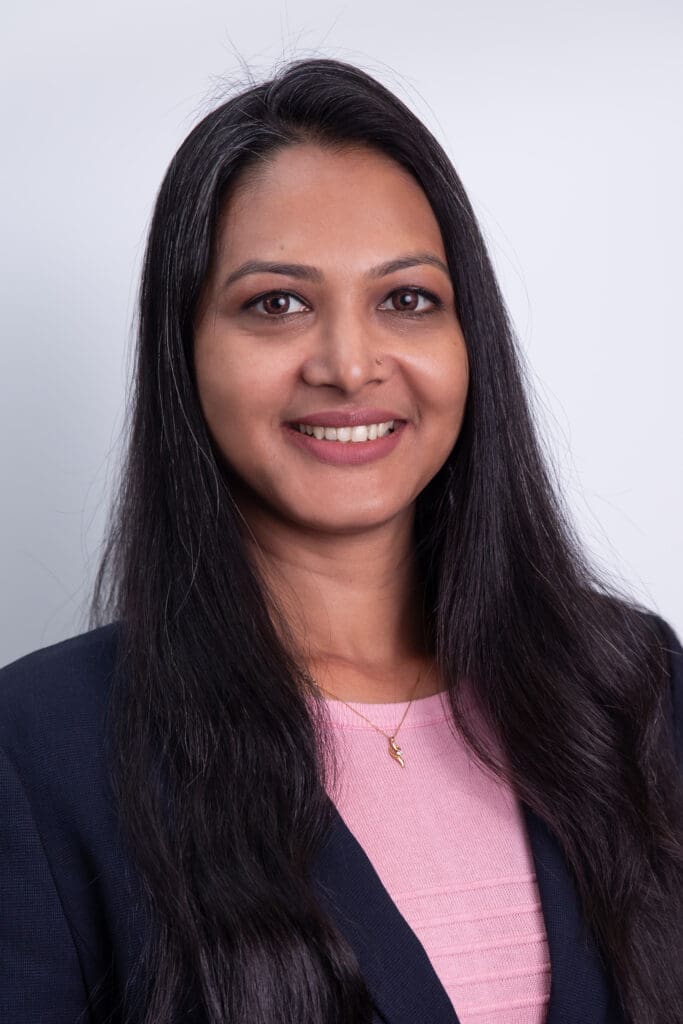A conversation with Smitha Shetty, Achilles Regional Director for APAC.
In the early 90’s, Achilles started helping oil and gas and construction companies to achieve higher health and safety standards. Now, more than 30 years on, Achilles continues to support companies to drive up standards across their upstream and downstream value chains but now with a wider remit that, as well as health and safety, also includes financial stability, cyber security, GHG emissions, and ESG (Environmental Social Governance).
As the climate crisis accelerates and the gap between the ‘haves’ and ‘have nots’ widens, there is increasing recognition by regulators, investors, consumers and business leaders, of the need for a bottom line that also makes a positive environmental and social impact.
You have been with Achilles for more than a decade, tell us about your journey with the company?
I joined Achilles in 2011 as Head of Operations with responsibility for setting up Achilles’ Indian office in Mumbai. I helped recruit and train the initial team, managed the transition of Indian customers from the Achilles European Hub to Mumbai and managed the daily operations to ensure we delivered the quality supply chain validation and due diligence our customers expect and need.

Since then, our Indian office has gone from strength to strength. I am now fortunate to be one of 5 Achilles Regional Directors located across the world with responsibility for the Asia Pacific region stretching from India to Australia which is managed via offices in Mumbai, Hong Kong and Sydney.
What Achilles achievements are you most proud of?
In the decades since Achilles started, we have built up vast knowledge about the complex globalised world in which we and our clients operate. Our people are on the ground in 17 locations worldwide to provide our clients with the in-depth understanding of local regulations, language and culture necessary to enable superior supply chain risk management.
As part of our extensive supplier validation processes, Achilles also collects and assesses data from a wide range of sources including documentation provided by suppliers, publicly accessible and historical information from the internet and, importantly, investigation reports from NGOs and charities and knowledge and insight collected from our audits and worker interviews.
I’m personally very proud of how the detailed work we do to enable market-leading businesses in some of the most high-risk industry sectors in the world to meet even the most challenging reporting requirements including those specified by India’s BRSR Core and the Australian Modern Slavery Act.
What’s been a challenge of the job that makes it more interesting?
What intrigues me is how both our Indian operation and Achilles, as a whole, has increased its capacity to take on and meet progressively bigger challenges. Initially our focus was health and safety in the Northern European oil and gas and construction industries and that continues to be important to us and our clients. But also, as health and safety standards have improved, focus has widened to consider a more extensive range of business impacts in line with the UN’s Sustainable Development Goals, the UN Global Compact and the OECD such as environmental and social considerations as well as other operational concerns such as cyber security risks and compliance with international sanctions.
This approach applies to all our practices, not just our prequalified supplier network but also our detailed supplier data verification, range of audit services and data analysis and reporting tools to support both ambitious supply chain resilience and sustainability goals and regulatory requirements.
The other challenge that I think we have been very good at addressing is the one of global supply chain complexity. Most large organisations have very complex supply chains with suppliers speaking many different languages with different cultural expectations. The Achilles solution is available in more than 20 languages which makes it a great tool for both English and non-English speakers alike. You simply choose the language you want to work in and get started. Not only does that give you the information you need in your own language, but also makes it easier for global teams to share important supply chain information and easier for global suppliers to engage with the process to deliver the best possible results.
As important as focusing on emissions is, does that cause companies to miss other important sustainability concerns?
Decarbonisation is important, but it’s only one part of the story. The other environmental issues and social elements also need to be addressed.
According to the UNICEF, approximately 160 million children are subjected to child labour and the International Labour Organisation (ILO) estimates that 49.6 million people are living in modern slavery – an increase of 10 million people in 5 years. In India, where I live and work, the Global Slavery Index estimates that on any given day nearly 8 million people are living in modern slavery.
The good news is that we do see that organisations are now recognising that they have to take the lead in the decisions that they’re making, that their purchasing decisions do hold power and they need to understand the implications of what they are potentially participating in. Fortunately, Achilles can help with that.
What’s next for Achilles?
We have a strong vision of what needs to be done to help protect both the planet and its people. We’ve evolved from being a company that helps ensure and improve health and safety to a company that provides our clients with a holistic solution that covers every aspect of supply chain risk including procurement regulations, health and safety, financial and cyber risk as well as sustainability and carbon management. Our solutions are a culmination of more than 30 years of organisational learning, collaboration and purposeful work. What’s next is to continue to do that work. Expanding our reach to support new clients to operate with greater environmental and social rigour and help them to demonstrate their sustainability credentials to the world with confidence.

